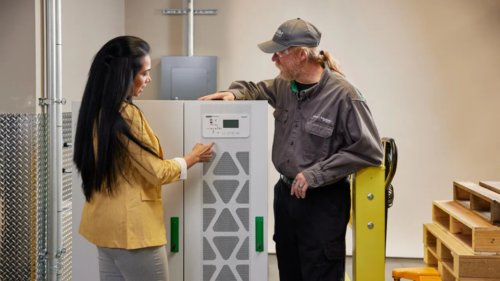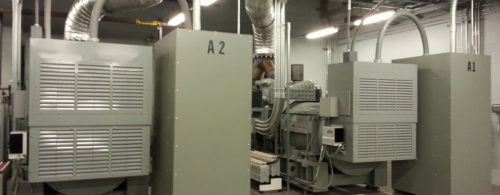New Electronic Technology Advances Fuel Cell Development
The U.S. Dept. of Energy (DOE) has announced another advance in fuel cell technology. Researchers at Virginia Polytechnic Institute and State University, Blacksburg, Va., working under a research grant managed by the National Energy Technology Laboratory, have developed a highly efficient converter that can boost low DC voltage produced by solid oxide fuel cell stacks to the higher voltage required for conversion to AC for household and commercial applications.
The boost is significant because it provides another technological step in increasing the
Virginia Tech, which is applying for a patent on the technology, developed its converter in the DOE’s Solid State Energy Conversion Alliance (SECA) Program, created to hasten the development of solid oxide fuel cells so they could be affordably marketed for power generation.
Virginia Tech’s device, when combined with highly efficient switching and digital control techniques, converts 22 volts to 400 volts at 97% energy efficiency. The device is able to boost voltage and reduce 120-hertz ripple current to 2% without the costly, bulky capacitors or additional converters that are customarily used. The net effect is that fuel consumption, the size of fuel cell systems, and costs are reduced, thereby taking a significant step toward SECA’s goal of 40% to 60% overall fuel cell efficiency at a cost of $400 per kilowatt by 2010. SECA studies indicate that each 1% improvement in inverter efficiency can reduce fuel cell stack costs by $5 to $10 per kilowatt.
Click here for or more information.
Do you have experience and expertise with the topics mentioned in this content? You should consider contributing to our CFE Media editorial team and getting the recognition you and your company deserve. Click here to start this process.




